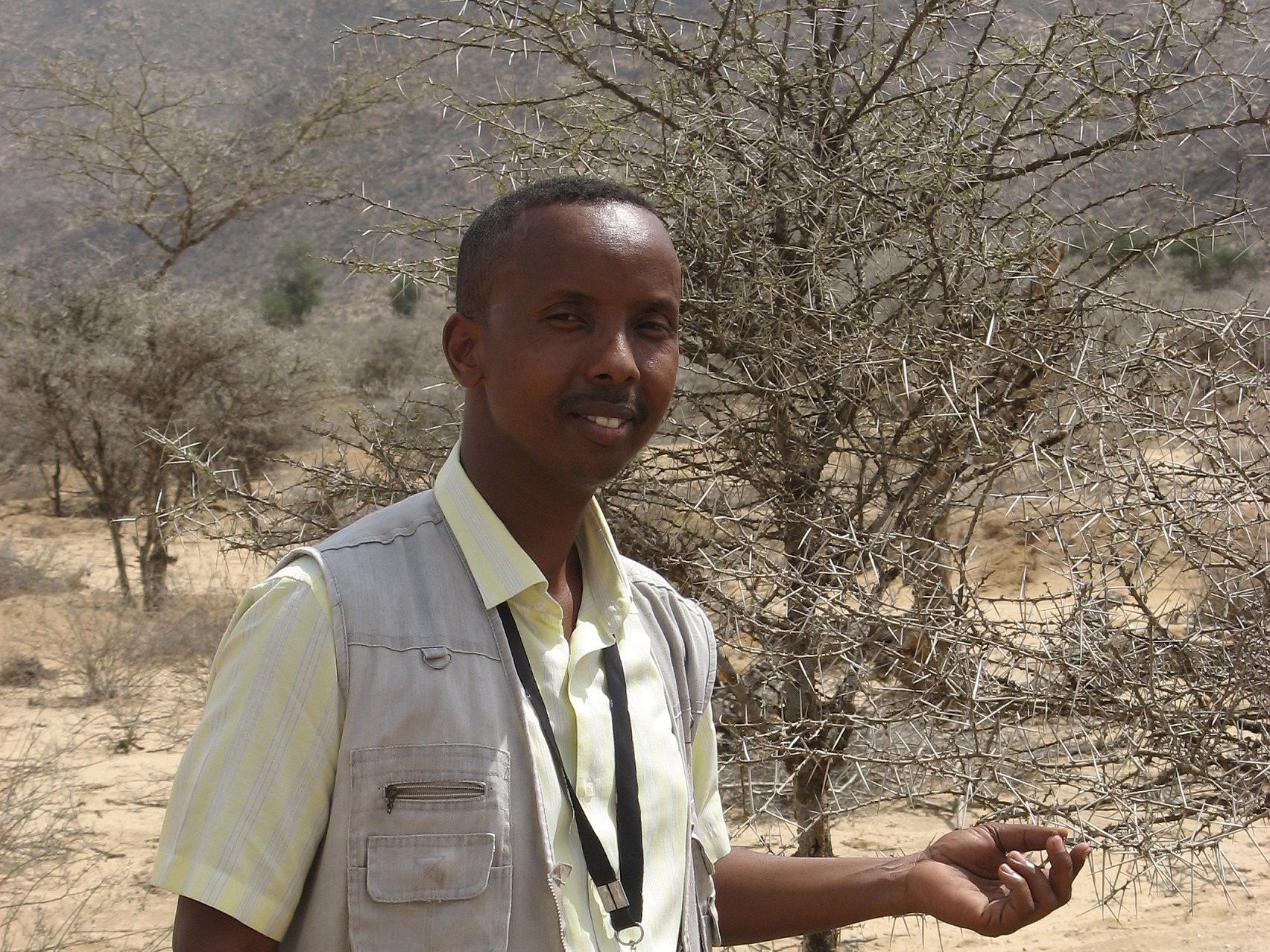
Mohamed Nagueyeh Amin – FMNR Champion
April 12, 2016
by Tony Rinaudo – World Vision Australia
Mohamed Nagueyeh Amin grew up in Awdal district of Somaliland, but he is a Djiboutian by birth. He gained a Diploma in Agriculture,Certificate of Holistic land and Livestock ,Certificate of DRR, degree of Business Administration and has a post graduate diploma in Peace and conflict Resolution studies. He joined WV Somalia in 2009. Nagueyeh learnt about FMNR first in 2012 through an Australian funded grant project. At first he through it was only a farming intervention, but later came to see it as a means of fighting climate change, environmental degradation and building livelihoods.
“When we started the project, people did not value trees. Cultivators asked ‘how can we leave trees on our farms – our crops won’t grow because of the shade’ and pastoralists said ‘we need to cut trees down in order for our livestock to have fodder’!”
And so started the process of bringing people on a journey and showing them through the demonstration plots how to prune trees and what impact this could have. Nagueyeh read widely to learn all he could about FMNR and took the attitude of learning together with the community as the developed a form of FMNR suitable to the Somaliland context. The plots were set up at regional, and farm scale levels. And progress was monitored jointly with the farmers. The small “bushes” present were pruned and water harvesting structures (half moons and swales) were dug to trap water, giving a significant impact within six months. Grasses began to grow on previously bare ground, behind the swales and half-moon structures providing valuable fodder. The trees increased in height by one to two meters in two years, despite serious drought. Women were able to use the pruned branches for firewood, and bee hives were introduced. In the Lughaya pilot plot honey production grew from 25Kgs in the first year, 45 Kgs in the second year and 75 Kgs in the third year. At $10/kg. honey provides a significant supplement to incomes. Additionally, tree species not seen in decades are thriving in the pilot areas, and wildlife such as hares and small antelope regularly browse in the plots.

Even Nagueyeh admits to being surprised by the transformation FMNR is bringing to the landscape. The communities themselves have been convinced and have begun to practice FMNR on their own initiative (without project assistance) on rangeland, in farmland and even in house compounds where tree stumps exist. Their aim is to restore the whole landscape.
From the outset, Nagueyeh has engaged with government personnel. The ministry of the Environment helped with creation of by-laws and assist communities in enforcing them. WV is helping to build government capacity in FMNR. Nagueyeh’s dream is to see all programs in Somaliland, no matter what sector they address, have an FMNR component. He would like to see more funding available to expand FMNR to other communities through exchange visits to established sites, training and follow up. “currently Somaliland is suffering from a prolonged drought, deforestation and land degradation. Drought frequency and intensity is increasing. We need to put all our resources into protecting and restoring the environment through FMNR and water harvesting. We want to implement soil and water conservation measures, FMNR and help pastoralists create grazing plans. We need to help pastoralists with alternate income generating schemes to give the rangelands time to regenerate. Community members who have been to Humbo are very keen to have a large project such as a carbon project to help drive environmental restoration through FMNR.”
